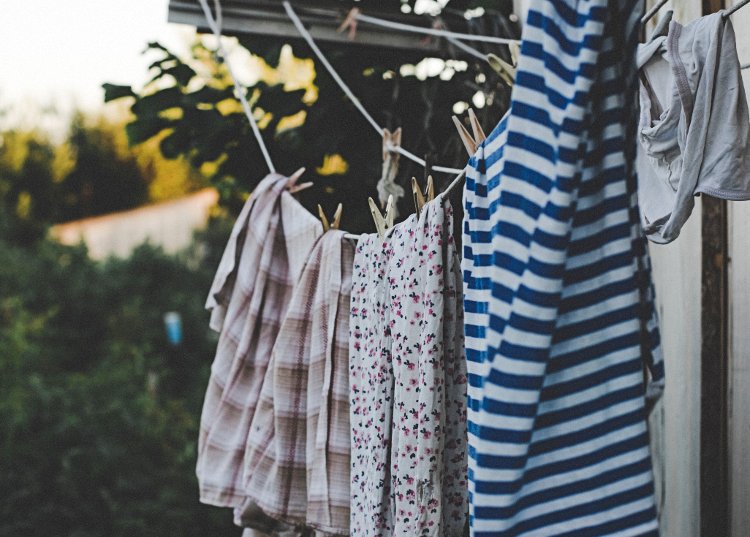
Sustainability is the ‘in’ word today. But as we share our Sunday Snacks with Sam and Ellie, you’ll realize that sustainability has been with us for a very long time. From cleaning and flattening tin cans during WWII to grandma taking the vegetable peelings out and throwing them in the garden.
Sam shares how she learned to sew and now patches jeans and fixes buttons on their clothes. While Ellie shares stories from the ’70s when homesteading was a trend.
You can download the transcript with this link: Sustainability_Returns
Recyle – Reuse – Reduce
Although each generation likes to think what they’re doing is new, it quite often is not new! But our consumerism economy makes sustainability an ever more important concept today. What were common sense and practical decades ago is now a priority to save the planet. Even more importantly, many of these ways to recycle, reuse, and reduce are helping families and seniors to balance their budgets. Here’s a sample of how important small efforts can be.
Tin Cans Go to War
CLICK HERE for a great article from the Orlando Sentinel about salvaging tin cans to help win the war (WWII):
A 1945 magazine article said it all in two sentences: “Nothing is more American than the tin can; and Yankee ingenuity never stops. GIs use empty tin cans for literally everything….”
Ellie and Sam share some thoughts on their personal memories. Sam learned many tips from her grandmother that are very helpful and practical today. While Ellie shares favorites books from the 70s including the Whole Earth Catalog and Living the Good Life. The following quote from Wikipedia in reference to the Whole Earth Catalog gives us a taste of ’70s attitudes for many Americans. The resources in these old catalogs are still valuable although I imagine many of the resources are no longer available. But like perusing seed catalogs in the middle of a snowstorm gives one hope, browsing the pages of these catalogs can be just as hopeful to those interested in sustainability today.
The Whole Earth Catalog (WEC) was an American counterculture magazine and product catalog published by Stewart Brand several times a year between 1968 and 1972, and occasionally thereafter, until 1998. The magazine featured essays and articles, but was primarily focused on product reviews. The editorial focus was on self-sufficiency, ecology, alternative education, “do it yourself” (DIY), and holism, and featured the slogan “access to tools”. While WEC listed and reviewed a wide range of products (clothing, books, tools, machines, seeds, etc.), it did not sell any of the products directly. Instead, the vendor’s contact information was listed alongside the item and its review. This is why, while not a regularly published periodical, numerous editions and updates were required to keep price and availability information up to date.
Steve Jobs compared The Whole Earth Catalog to Internet search engine Google in his June 2005 Stanford University commencement speech.
When I was young, there was an amazing publication called The Whole Earth Catalog, which was one of the bibles of my generation … It was sort of like Google in paperback form, 35 years before Google came along. It was idealistic and overflowing with neat tools and great notions.
Then at the very end of this commencement speech Jobs quotes explicitly the farewell message placed on the back cover of the last 1974 edition of the Catalog (#1180 October 1974 titled Whole Earth Epilog) and makes it his own final recommendation : “Stay hungry. Stay foolish.”
Sustainability today involves best uses for many products we use regularly and consideration of ‘just how many do I need.’ In the video, Ellie mentions a full-circle recycling company. Here’s the link:
From the website of ForDays:
So, what’s the problem?
Fashion is one of the most pollutive industries. We’re producing more clothing than ever before and wearing it much less. Over 85% of all textiles end up in landfills, including clothing from resale and donation centers. What they can’t sell gets trashed or burned, causing major social and environmental problems. Most of it can be kept out of landfills if we’re thoughtful and proactive.
Luckily, we have a solution…
For Days is the first circular fashion brand. We’ve spent the last 4+ years building a network of expert recycling partners to keep clothing out of landfills. We design products for circularity. Everything is organic, non-toxic, and can be recycled into new fabric.
We collect, sort, and recycle used garments, linens, and more, from any brand through our best-selling Take Back Bag.
Ellie will share her experience using this site in a future post.
In the meantime, we’d love to hear from you. What sustainable practice did you learn from another generation? Please share it with us!
If you enjoy our life hacks and simple common sense approaches to sustainability and everyday life, please spread the word. Visit and like our youtube channel and our Facebook page. And sign up for our newsletter – the form’s on the HOME page. Share your thoughts with us on youtube or FB. Here’s to your peace of mind because you’re prepared!
Between us, we have over 100-years of experience, and Sam’s only 40! If you enjoy our life hacks and simple common sense approaches to sustainability and everyday life, please spread the word.